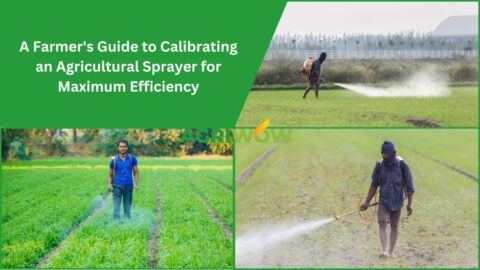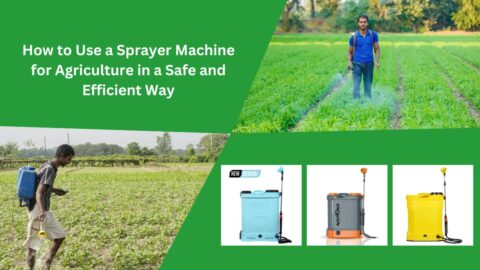Using a well-maintained sprayer agriculture machine is crucial for a successful farming operation. Regular maintenance not only extends the life of your equipment but also ensures accurate application of pesticides and fertilizers, which saves you money and protects your crops. Here are some essential maintenance tips every farmer should know.
Daily Checks and Cleaning
After each use, start by thoroughly cleaning the sprayer machine for agriculture. Rinse the tank, boom, and nozzles with clean water to prevent residue buildup that can clog nozzles or contaminate future applications. Check all hoses and connections for leaks small leaks can waste expensive chemicals and lead to uneven application. Inspect the nozzles for a consistent spray pattern. If a nozzle is clogged, clean it with a soft brush; never use wire or pins as they can damage the orifice.
Seasonal and Pre-season Maintenance
Before the spraying season begins, give your equipment a complete check-up.
- Calibrate the sprayer to ensure accurate chemical application per acre, preventing under- or over-application.
- Check the pump for wear and replace worn seals or diaphragms to maintain pressure.
- Lubricate all moving parts, including bearings and hinges, to prevent rust and ensure smooth operation.
Long-term Storage
At the end of the season, store your equipment properly:
- Drain all water and chemicals from the system.
- Run non-toxic antifreeze through the pump and lines to prevent freezing damage.
- Store it in a dry, covered place away from direct sunlight and weather exposure.
- Remove and clean nozzles, storing them separately to prevent clogs over winter.
Tips to Save Water and Pesticides While Using Spraying Machine for Agriculture
Wasting water and pesticides is costly and harmful to the environment. Follow these tips to maximize efficiency when using a spraying machine for agriculture:
1. Calibrate Your Sprayer Accurately
Measure your application rate over a known area, adjusting pressure and speed to achieve the right droplet size and flow. This ensures no excess spraying and reduces waste.
2. Choose the Right Nozzles
Flat-fan nozzles are ideal for broadcast spraying, while hollow-cone nozzles work best for targeted applications. Low-drift nozzles help reduce chemical drift, ensuring precise application.
3. Spray in Favorable Weather Conditions
Avoid spraying in windy or excessively hot conditions to prevent drift and evaporation. Early mornings or late evenings are ideal for efficiency and accuracy.
Top 5 Benefits of Using a Pesticide Sprayer Machine in Agriculture
The sprayer agriculture machine has transformed farming by improving efficiency, safety, and yields. Here’s why it’s worth the investment:
- Uniform Application – Ensures even pesticide and fertilizer distribution, protecting all crops equally.
- Increased Efficiency and Time-Saving – Treats large fields quickly, freeing time for other farm work.
- Reduced Labor Costs – Requires less manpower compared to manual spraying.
- Improved Safety – Limits direct contact with chemicals, reducing health risks for workers.
- Better Crop Yield and Quality – Promotes healthy, high-quality produce through precise application.
FAQs
Q1. How often should I calibrate my sprayer agriculture machine?
It’s recommended to calibrate your sprayer agriculture machine at the start of every spraying season and whenever you change nozzle types, spray pressure, or operating speed. Regular calibration ensures accurate application rates, reduces waste, and protects your crops.
Q2. What is the best way to clean a spraying machine for agriculture after use?
After each use, rinse the tank, hoses, and nozzles of your spraying machine for agriculture with clean water. Use a soft brush to remove debris from nozzles and filters. Avoid using metal tools, as they can damage spray tips. This prevents clogging and contamination in future applications.
Q3. How can I increase the lifespan of my sprayer machine for agriculture?
To extend the life of your sprayer machine for agriculture, perform routine inspections, replace worn seals and hoses, lubricate moving parts, and store the machine in a dry, covered space when not in use. Running non-toxic antifreeze through the system before winter can also protect it from freezing damage.










